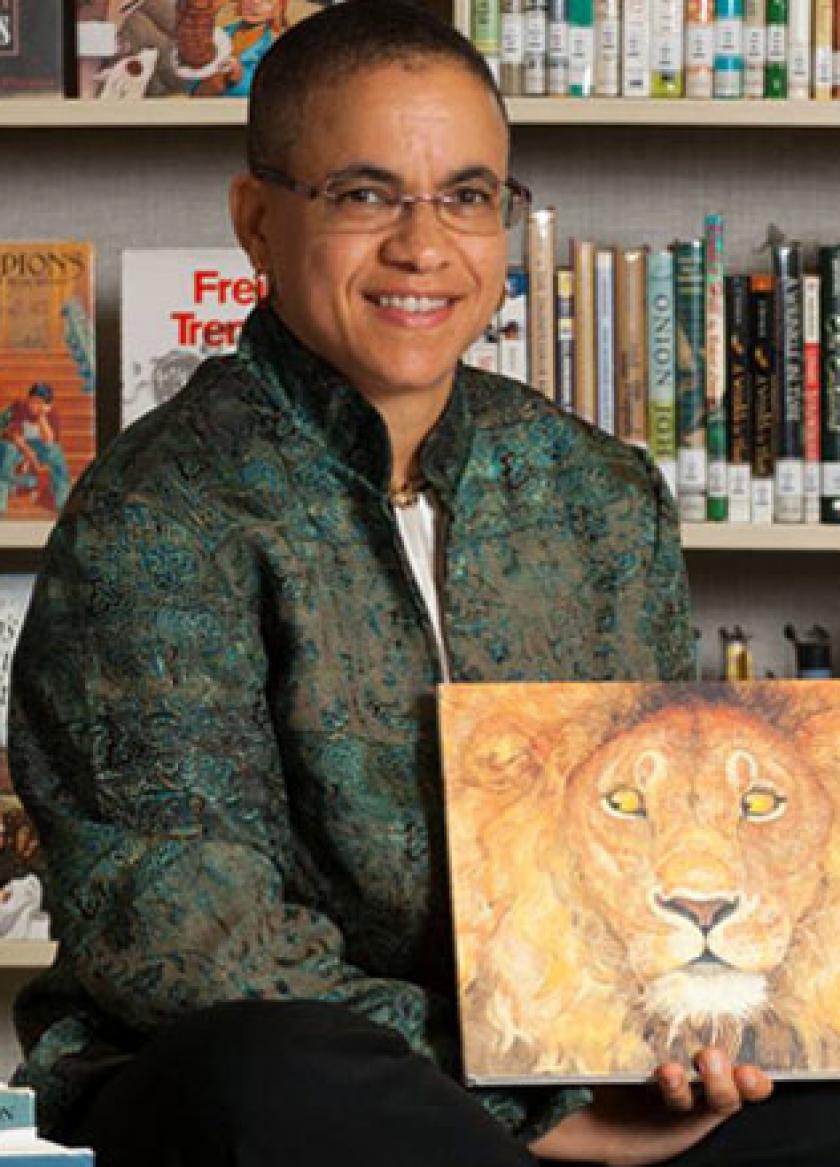
 The life and career of GSLIS research fellow Michelle H. Martin was fundamentally influenced by a woman named Augusta Baker. As a child, Martin knew Baker and had opportunities to see and hear the storytelling specialist, who was a storyteller-in-residence at the University of South Carolina (USC) for fourteen years. Today, Martin is the Augusta Baker Chair in Childhood Literacy at USC.
The life and career of GSLIS research fellow Michelle H. Martin was fundamentally influenced by a woman named Augusta Baker. As a child, Martin knew Baker and had opportunities to see and hear the storytelling specialist, who was a storyteller-in-residence at the University of South Carolina (USC) for fourteen years. Today, Martin is the Augusta Baker Chair in Childhood Literacy at USC.
The chair position was established to honor Baker, and Martin is the inaugural holder of the title. In this role, she conducts literacy research, manages outreach programs, and teaches at USC’s School of Library and Information Science. Being selected for this position at USC marked Martin’s official introduction to the realm of library and information science and she hopes to further develop her expertise in LIS as a 2013-2015 GSLIS research fellow.
“I am new to the LIS profession since my doctoral degree is in English, and I'm eager to learn all I can about the profession,” Martin said. “I figured this would be a good way to get to know new colleagues, [learn] what exciting research is happening at other LIS schools, and to meet new scholars who might be future collaborators on research projects.”
Later this month members of the GSLIS community and the public will have a chance to get to know Martin and to learn about the woman who inspired her. She will deliver the 2014 Gryphon Lecture on Friday, February 28. Martin’s talk, titled “Augusta Baker and the Art of Storytelling: Gateway to Children's Literacy and Literature,” will highlight Baker’s career as a storyteller at USC and at the 135th Branch of the New York Public Library in Harlem. The presentation will also explore Baker’s writings on childhood literacy and the need for diversification in children’s literature. Martin will also speak at a brown bag session on March 3.
The Gryphon Lecture series is hosted every spring semester by the Center for Children's Books and features a leading scholar in the field of youth and literature, media, and culture. Gryphon Lectures are free and open to students and the public. A reception to discuss issues raised, network across departments, and meet with the speaker follows each lecture.